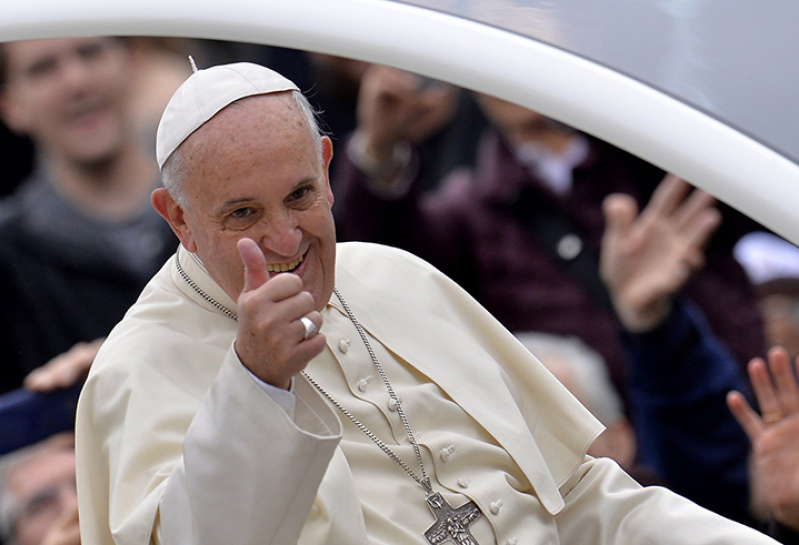
Pope Francis has called for unity among evangelicals, Catholics, and Christians from other denominations, emphasizing that "we are one in Christ" and warning that division between the groups is the work of the devil.
"Division is the work of the 'Father of Lies,' 'the Father of Discord,' who does everything possible to keep us divided," Francis said in a video message to a gathering sponsored by the John 17 Movement, according to Catholic Herald.
"I feel like saying something that may sound controversial, or even heretical, perhaps," he added. "But there is someone who 'knows' that, despite our differences, we are one. It is he who is persecuting us. It is he who is persecuting Christians today, he who is anointing us with (the blood of) martyrdom."
The Pope explained that the devil "knows that Christians are disciples of Christ, that they are one, that they are brothers! He doesn't care if they are Evangelicals or Orthodox, Lutherans, Catholics or Apostolic ... he doesn't care! They are Christians."
Because of this, Francis said, division is a "wound in the body of the church of Christ."
"We should not "want this wound to remain open," he said, encouraging believers to seek unity together and pray for one another.
The Pope's message was shared with a gathering sponsored by the John 17 Movement, which is named after the Bible passage in which Jesus prays for the unity of his disciples.
"The John 17 Movement is a contagious call to all professing Christians to relate together properly, beckoning us to embrace the final prayer of Jesus," reads a statement from Joe Tosini, founder of John 17 Movement, on the group's website.
"On the eve of his death, He pleaded: 'Father may all who believe in me be one so the world will know you sent me.' This final plea stands as the most authoritative strategic direction for followers of Jesus. As we respond, the church-in all her rich diversity-will emerge as the attractive 'city on a hill' potently demonstrating the authenticity of Jesus' claims."
Since becoming the head of the Roman Catholic Church two years ago, Francis frequently stresses the importance of unity among believers.
The Christian Post notes that in July 2014, he became the first pope to make an official visit to a Pentecostal church, when he spoke at the Evangelical Church of Reconciliation in the southern city of Caserta, Italy.
"Someone will be surprised: 'The pope went to visit the evangelicals?' But he went to see his brothers," the pope told the 350 or so worshipers at the church.
Speaking earlier in May, Francis reminded Christians that "We must be one, just one being, as Jesus and the Father are one."
"This is precisely the challenge for all of us Christians: to not give way to division among us; to not let the spirit of division, the father of lies, come between us," the pope said during his Homily at Mass, Vatican Radio reported.
"Continuously seek unity. Everyone is different in his own way, but [we must] try to live in unity. Has Jesus forgiven you? He forgives everyone. Jesus prays that we are one, one being. And the Church has great need of this prayer of unity."
As previously reported by the Gospel Herald, the latest Pew Research Center Survey found that while the Pope is most widely admired by Catholics (90%), an impressive six-in-ten Protestants and two-thirds of the religiously unaffiliated also view him with "great favor."
According to NBC, the Pope's popularity has eclipsed any numbers his predecessor, Pope Benedict XVI, ever posted and puts him on par with Pope John Paul II in the 1980s and 1990s.
Additionally, he has been named the world's "most influential leader" by Twitter users and is among Time Magazine's "100 Most Influential People."






